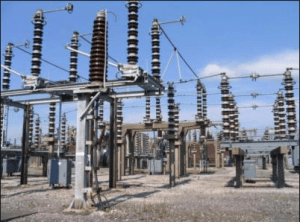World Bank approves $200m to support provision of electricity in West Africa and Sahel Region
 The availability of electricity is known to lead to the creation of job, and more importantly, small businesses, but there is scarcity of electricity in West Africa and the Sahel, where it is available, it is irregular, therefore stalling economic development.
The availability of electricity is known to lead to the creation of job, and more importantly, small businesses, but there is scarcity of electricity in West Africa and the Sahel, where it is available, it is irregular, therefore stalling economic development.
The World Bank Group last week announced the approval of a project in the form of credit and grant to provide electricity to the West Africa and Sahel Region.
The Bank announced on April 17, 2019 the Regional Off-Grid Electrification Project (ROGEP), which includes $150 million in the form of credit and grant from the International Development Association (IDA) and $74.7 million contingent recovery grant from the Clean Technology Fund to help the West African Development Bank and ECOWAS’ Center for Renewable Energy and Energy Efficiency expand off-grid access to electricity for populations in 19 countries in West Africa and the Sahel region.
The countries to benefit from these projects include Benin, Burkina Faso, Cabo Verde, Cameroon, Central African Republic, Chad, Cote d’Ivoire, The Gambia, Ghana, Guinea, Guinea-Bissau, Liberia, Mali, Mauritania, Niger, Nigeria, Senegal, Sierra Leone and Togo.
According to the Bank, the overall objective of ROGEP is to increase electricity access of households, businesses, and public institutions using modern stand-alone solar systems through a harmonized regional approach.
“The project is expected to benefit about 1.7 million people currently living without electricity connection or with unreliable supply, as well as businesses and public institutions who will use modern stand-alone solar systems to improve their living standards and economic activities,” a release from the Bank copied to ghanabusinessnews.com has said.
Commenting, Rachid Benmessaoud, Coordinating Director for Regional Integration in West Africa said: “So far, only three per cent of households in West Africa and the Sahel are served by stand-alone solar home systems, and 208 million people in the sub-region do not have access to electricity. The project seeks to assist regional policy makers to address barriers to create a regional market for stand-alone solar systems, which is essential to reduce energy poverty in the region, and entrepreneurs to take opportunities in this market through development of scalable business solutions.”
“The new project will help adopt regional standards and regulations to establish a regional market with harmonized policies that will attract larger market players for the benefit of all participating countries,” he said.
By Emmanuel K. Dogbevi
Copyright ©2019 by Creative Imaginations Publicity
All rights reserved. This article or any portion thereof may not be reproduced or used in any manner whatsoever without the express written permission of the publisher except for the use of brief quotations in reviews.
